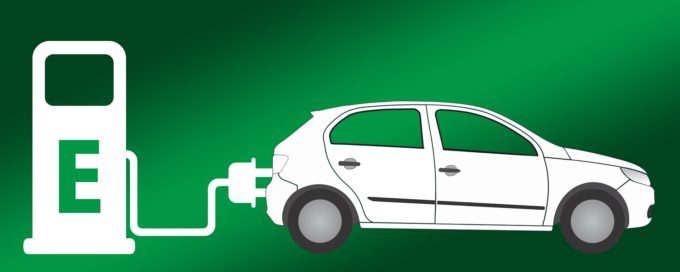ChargePoint, Inc., v. SemaConnect, Inc., No. 18-1739, opinion hosted by the Court of Appeals for the Federal Circuit.
The United States Court of Appeals for the Federal Circuit ruled last week in the case of ChargePoint v. SemaConnect, a legal action concerning the validity of several patents relating to charging stations for electrically powered vehicles. Writing for Law360, Ryan Davis sheds light on the origins of the controversy. After losing a lucrative contract for electrical vehicle charging stations (to be financed from a multi-billion dollar fund created by a settlement in the Volkswagen emissions fraud case), ChargePoint sued their competitors SemaConnect to forestall them from perpetrating what they alleged were infringements upon their valid patents.
Fundamental to patent law is the rule that “laws of nature, natural phenomena, and abstract ideas” cannot themselves be subject to patents. A two-part test for patentability has emerged: “'First, we determine whether the claims at issue are directed to one of [the aforementioned] patent-ineligible concepts.’” If so, “we begin the “search for an ‘inventive concept’—i.e., an element or combination of elements that is ‘sufficient to ensure that the patent in practice amounts to significantly more than a patent upon the [ineligible concept] itself.’”
Because every invention or discovery is at some level rooted in natural phenomena and abstractions, there is a higher standard required to declare a claim invalid than simply demonstrating the invention has such a base. It must be demonstrated that the law of nature, natural phenomenon, or abstract idea is the focus of the claim. The specifications can help inform this, but the language of the claims themselves is the main identifier of the focus, since claims are what determines the scope of the patent, and preemptively preventing the use of abstract ideas is the relevant justification for limiting what can be patented. Four patents were evaluated in this decision, hereafter referred to as the ‘715, ‘131, ‘967 and ‘570 patents.
The court found claim one of the ‘715 patent to be focused on an abstract idea, communication over a network. This finding was influenced by the fact that the specification “‘fail[ed] to provide any technical details for the tangible components, but instead predominantly describe[d] the system and methods in purely functional terms.’” The court cited precedent showing that other claims had been deemed unpatentable in part because the specification revealed they were abstract concepts, and that any “tangible components” in the specifications were “merely ‘conduits for the abstract idea.’” “[T]he specification never suggests that the charging station itself is improved from a technical perspective, or that it would operate differently than it otherwise could” and “suggests that the invention of the patent is nothing more than the abstract idea of communication over a network for interacting with a device, applied to the context of electric vehicle charging stations.” It does not matter whether the specification directs itself at points towards less abstract concepts, as each individual claim must be valid, and “[e]ven a specification full of technical details about a physical invention may nonetheless conclude with claims that claim nothing more than the broad law or abstract idea underlying the claims, thus preempting all use of that law or idea.” The court found that ChargePoint’s claim was “‘drafted in such a result-oriented way that [it] amounted to encompassing the ‘principle in the abstract’ no matter how implemented.’”
The court found the first claim of the second patent, ‘131, “almost identical” to that of patent ‘715, and found additionally that adding a demand response system does not render the claim patentable, as demand-response is simply another abstract concept and adding abstract concepts together “‘does not render the claim non-abstract.’” The court found patent ‘967 to be similar to ‘715 and to be focused on the abstract concepts of communicating over a network and demand response. The claims at issue in patent ‘570 include a number of concrete technical details, but the court finds these claims invalid because these are not the focus of the invention and “[t]he only improvement alleged is use of the concept of network communication to interact with the particular devices.”
Even if a claim is focused on an abstract idea, it may be patentable if it “supplies an inventive concept that renders a claim ‘significantly more’ than an abstract idea to which it is directed.” The court rejects ChargePoint’s arguments that its claims have done so, saying that all such arguments they have made rest on the abstract idea of communication over a network and that “‘a claimed invention’s use of the ineligible concept to which it is directed cannot supply the inventive concept that renders the invention ‘significantly more’ than that ineligible concept.’” Adding a demand response system to the car charging industry is also insufficient, as demand response is described as “a familiar business choice of terms of dealing to help match supply and demand” and therefore incapable of supplying the inventive concept necessary to render any of the contested claims patentable.
Commentators have found the idea that the claims were based on abstract ideas controversial. Writing for IPWatchdog, Russell Slifer points out that at least one of the claims “recites numerous physical electrical components” and ponders how such a claim could be found to be solely abstract. While Mr. Slifer raises an important issue of how far the courts are willing to extend the term “abstract,” he does not address the court’s acknowledgment of “tangible components” and the method by which they concluded that such components were “merely ‘conduits for the abstract idea’” that the court claimed was the focus of the invention.
